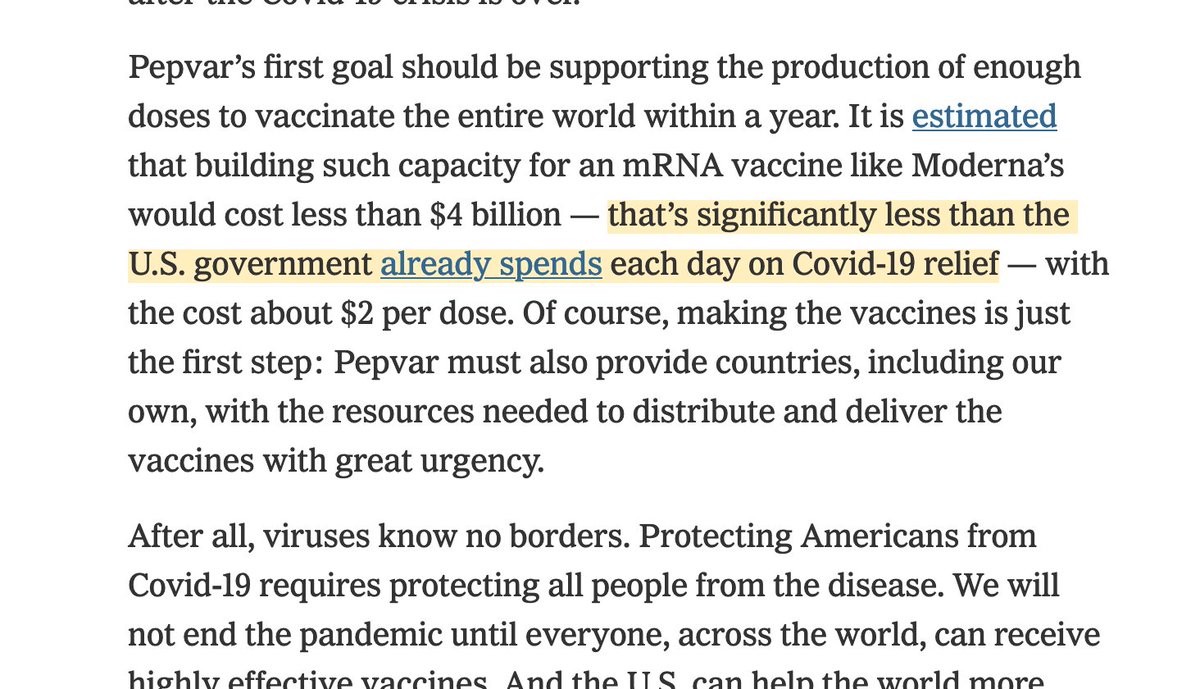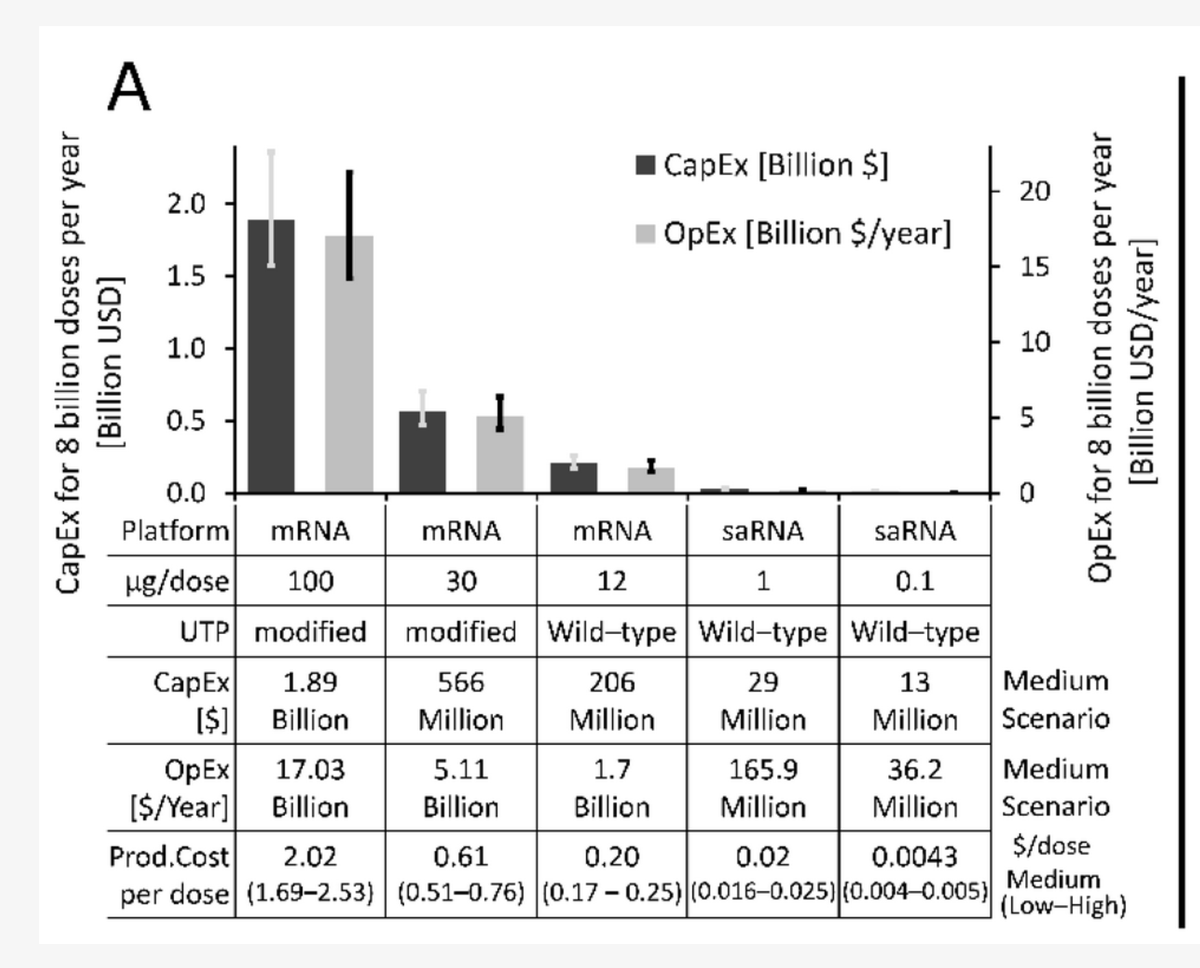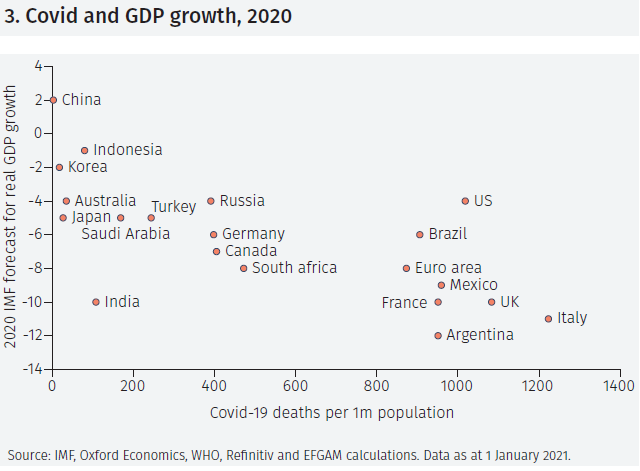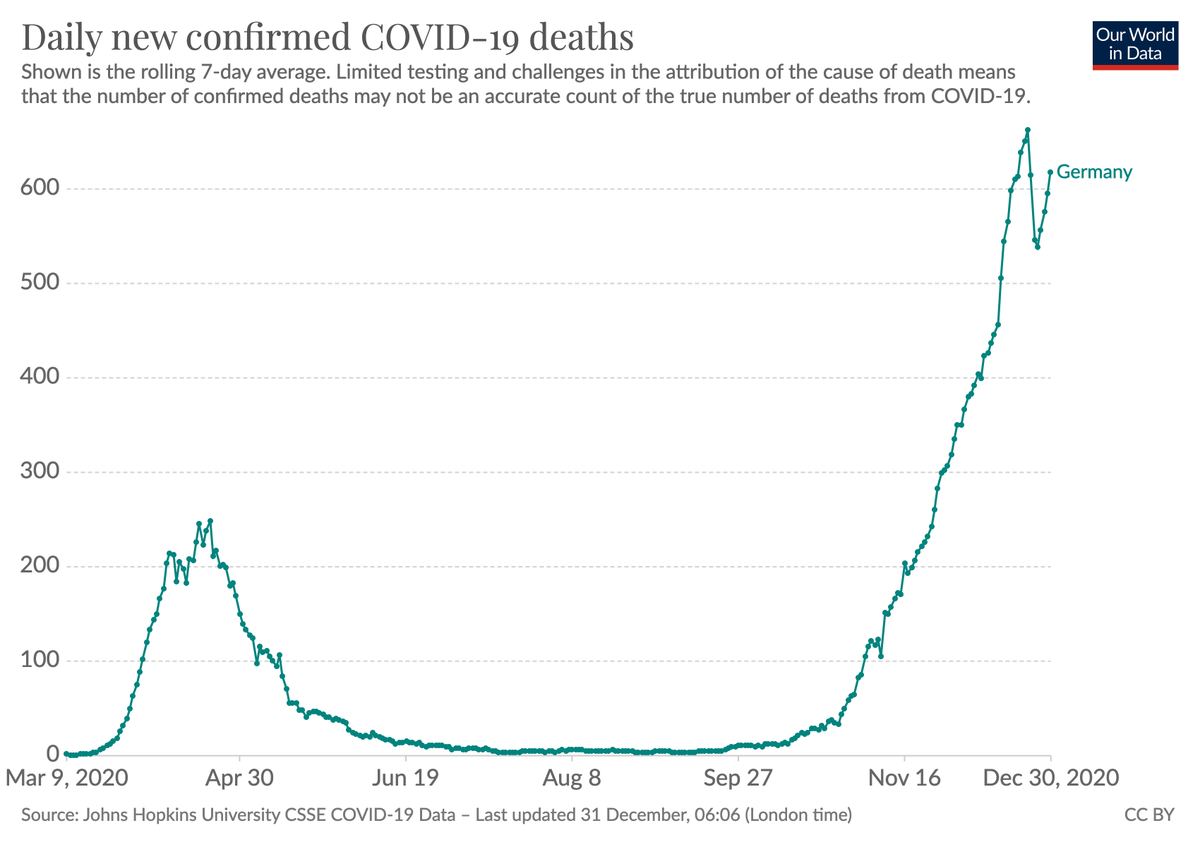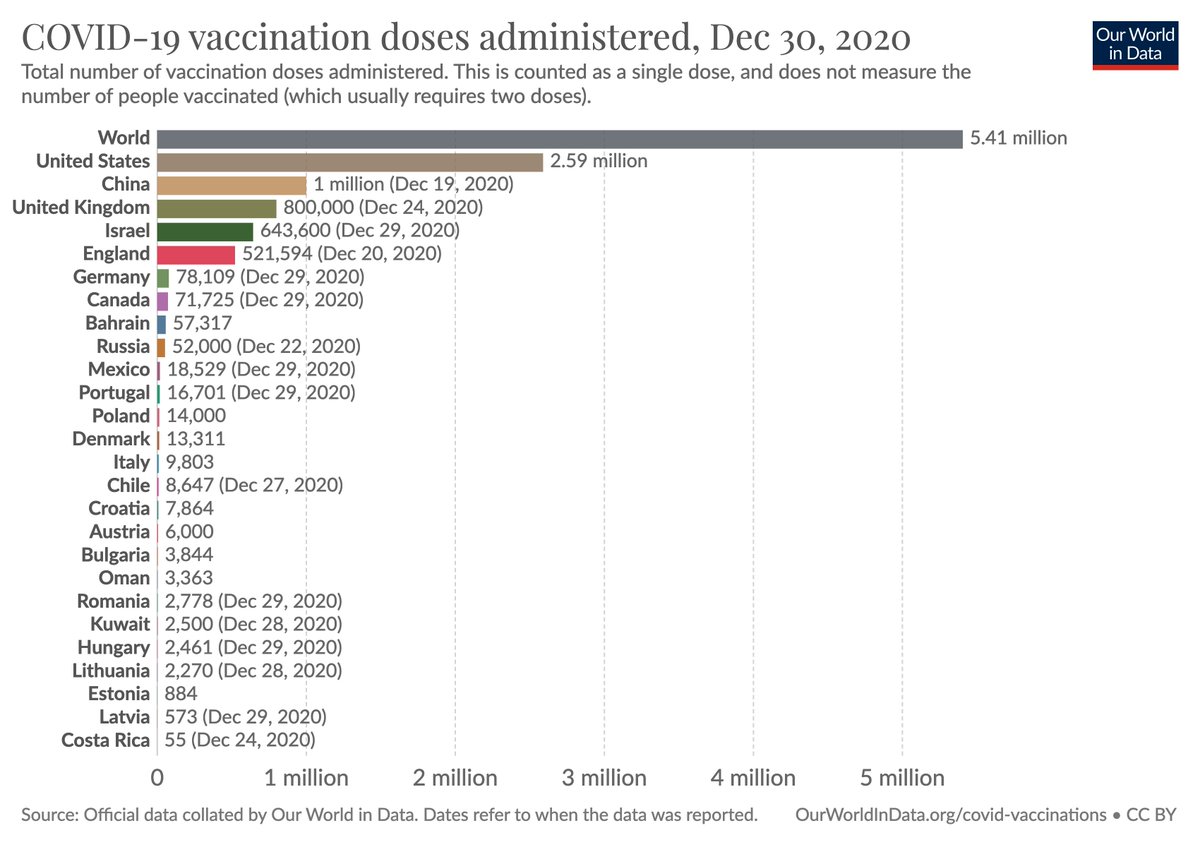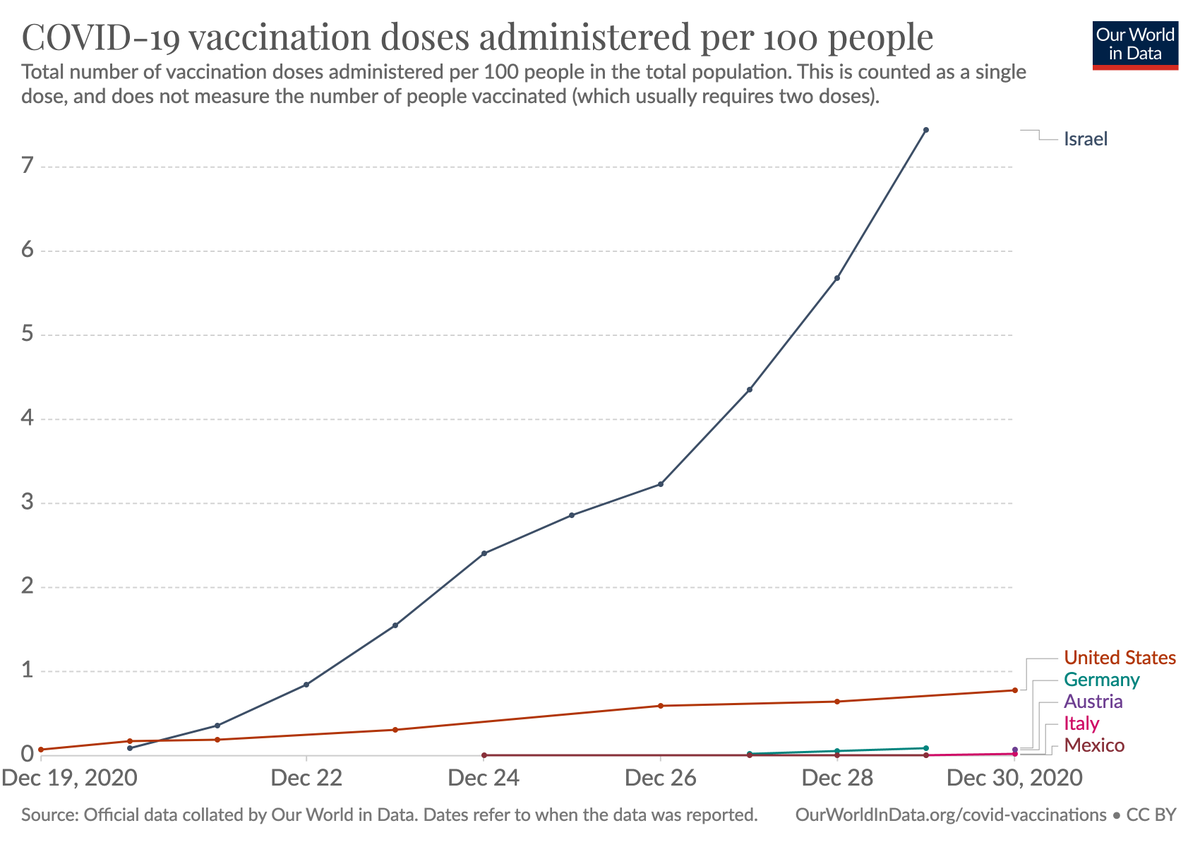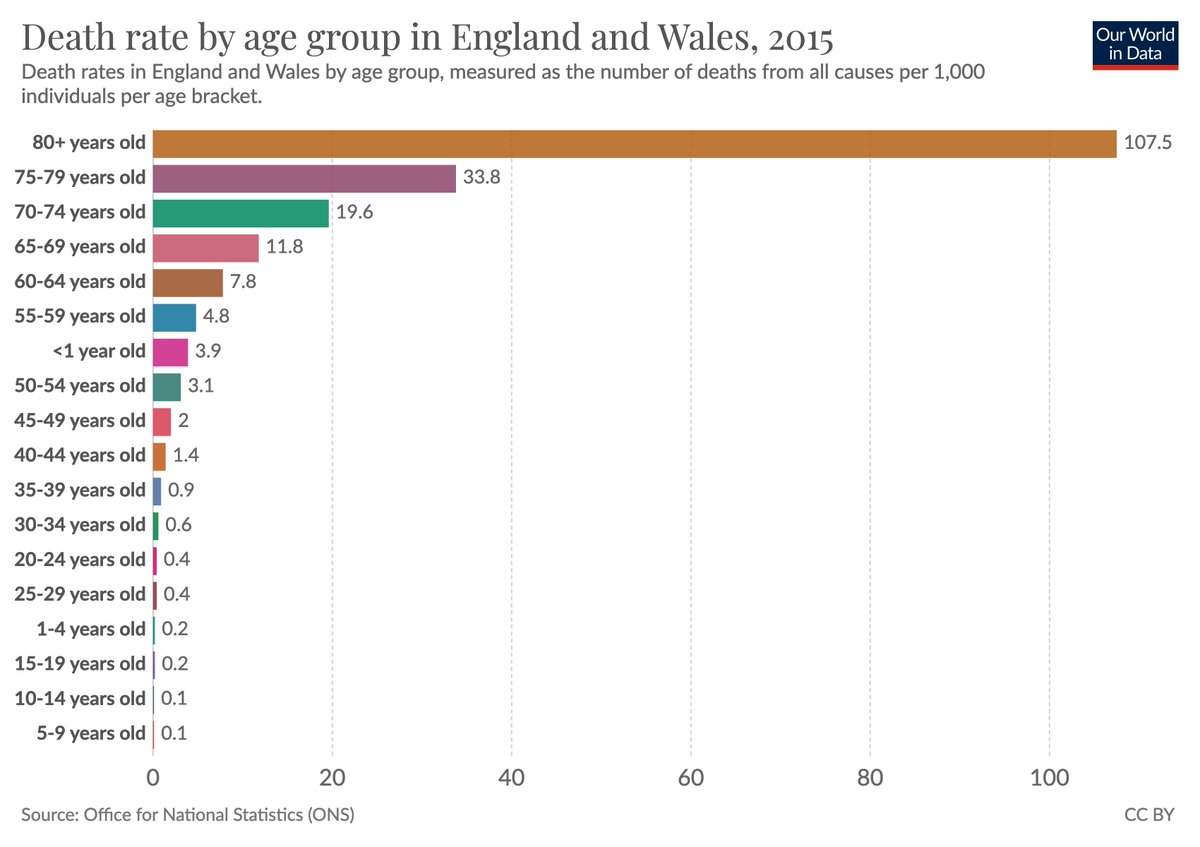
Let’s assume that the cost estimates of that study are much too optimistic and the true cost of producing the vaccine will be $200 billion in the end – it would still be less than the economic losses in just *month* last year.
https://twitter.com/MaxCRoser/status/1349473388448854016
That’s just the loss in production (4.5% decline of global GDP according to the IMF: imf.org/external/datam…).
The full ‘cost’ of the pandemic is of course much larger than that – the pandemic’s impact on our daily lives, people being sick, people dying.
The full ‘cost’ of the pandemic is of course much larger than that – the pandemic’s impact on our daily lives, people being sick, people dying.
The point is:
estimate of the pandemic’s cost that is much too low >> estimate of the cost to produce vaccines that is much higher than what this study estimates
estimate of the pandemic’s cost that is much too low >> estimate of the cost to produce vaccines that is much higher than what this study estimates
There are very important efforts that have the goal to finance the production of vaccines for countries around the world – but they are not fully funded yet and should be larger so that they can offer vaccines to everyone.
https://twitter.com/MaxCRoser/status/1345799544840343555
• • •
Missing some Tweet in this thread? You can try to
force a refresh

